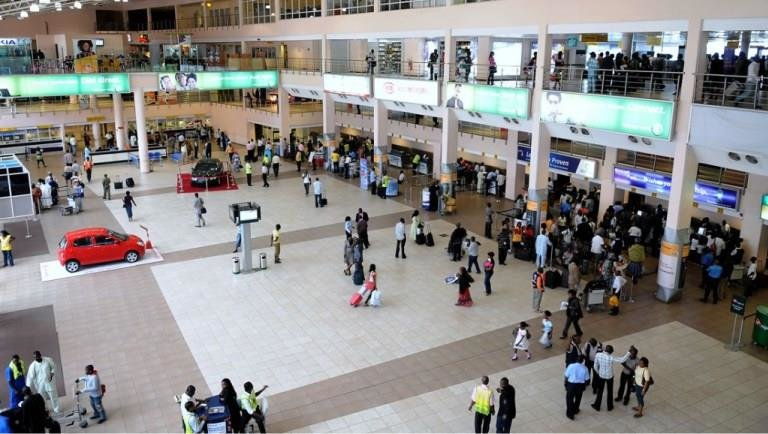The just concluded Aviation Africa Summit 2023 hosted by Nigeria has exposed the wide gap in air travel in Africa despite the implementation of the Single African Air Transport Market (SAATM), one of the projects of the African Union to create a single market for air transport in Africa.
As of July, last year, 34 out of 55 countries in Africa have signed up for the SAATM as a platform to liberalise air transportation in Africa and increase aviation contribution to the gross domestic product (GDP) of African countries.
Five years after SAATM was established in January 2018, there are concerns over the efficiency of the project as it is yet to add up by increasing access to air travels in Africa and by Africans.
Of particular concern is how SAATM can enhance intra-African travel which is almost zero as travels within Africa could be highly traumatic.
Rice farmers highlight critical issues over ABP loan default
Dudu enlightens with solo exhibition at Nomadic Art Gallery
South Africa’s Deputy Minister of Transport, Mr Lisa Mangcu, spoke about how he first travelled to Europe to come to Nigeria from South Africa because there was no direct flight from South Africa to Abuja.

For years, many Africans travelling within Africa for businesses and leisure have faced untold hardship in getting to their destinations due to poor connectivity.
Secretary General of the African Civil Aviation Commission (AFCAC), Adefunke Adeyemi, at the summit, gave a vivid picture of the present situation in air travel in Africa. According to her, out of the 1.4bn population of Africans, only 100,000 fly by air. “It can take a day and half to get from Dakar to a part of Southern Africa,” she also observed.
Speaking at the summit, the AFCAC scribe said while the region has not attained the desired goal of easing air travels in Africa due to several challenges, the SAATM has achieved eleven 5th freedom routes since it started, which has helped in stimulating traffic among cities within the West, Central, North and Eastern Africa.
She said, “I want to talk about why this is important for Africa. Why is SAATM important to us? This brings me to the question of what is the African way? The African way is unique to all African countries because Africa itself is not a country. We are 55 but we have some unique qualities that are common to all 55. The African way common to all of these countries is family, community, adherence to culture and helping one another.
“So, with all of these qualities, you may wonder why these qualities are not translating to the air transport space, particularly from the point of view of SAATM and air connectivity. Air connectivity is really important to Africa.
“Because of those qualities I have mentioned, of family, of culture, of supporting each other and helping each other, let us put it in the context of African demographics. We have 1.4bn Africans living in Africa. Guess how many of them we can get on a plane and can do all the things that travel enables, it is just over 100,000.
“So, it is not the African way that N1.3bn people cannot fly by air. It is also not the African way that people are denied the opportunities to fly by air and go to other countries – opportunity for education, opportunity for medical care, opportunity for travel, opportunity for learning. This is not the African way. It is not the African way that Africa cannot do business with each other after all we traded with ourselves all the time.
We are not able to trade among ourselves today because it is not easy to facilitate movement of goods. SAATM remains the key to unlocking the African potential.”
While the African aviation leaders are determined “to step up for business,” they have identified challenges bothering on airport infrastructures, multiple charges, non-implementation of the protocol on free movement, visa requirements within the African countries, among others. While other regions of the world have liberalised, African countries in the name of protecting their markets came up with stringent measures that are discouraging to operators.
Vice-President of the International Air Transport Association (IATA) for Africa and Middle East, Kamil Alwadi, said African airlines have a set of unique issues that are not the same in other regions, lamenting that African airlines are only responsible for 2.1 percent of the global air traffic.
“An airline would need to pay roughly 25 or 26 percent interest rate on any loan, almost killing the chances of the airlines to move forward and again, this is a global industry. You are competing with other airlines who pay six to seven or eight percent interest rate. So, already these African airlines are at a disadvantage. Lease is three times more expensive, when you look at insurance and compared it with others, it is almost 10 times more expensive for African airlines.”
Minister of Civil Aviation, Egypt, Lt. General Mohamed Abbas Helmy, said collaboration is key to growing civil aviation in Africa.
“Egypt believes in the importance of joint cooperation and expansion towards opening new, more effective horizons with all African brothers in various air transport activities, especially in the field of training and exchange of experiences, as well as adopting all African initiatives that will enhance the organizational, institutional and financial capabilities of the countries of Africa, and aim to contribute to the development of the African air transport industry,” he said.
The Chief Executive Officer of Qatar Airways, Akbar Al Baker, said Africa is a region with huge and amazing potentials that are not being realised due to poor infrastructure, poor connectivity. According to him, “If we want a profitable and sustainable sector, we must work together. It is encouraging that we are seeing new collaboration initiatives.” He said the right regulatory environment and building the right infrastructure would help in unlocking African potentials.
The host of the conference, the Director-General of Nigeria Civil Aviation, Capt. Musa Nuhu, said the summit was an eye-opener for Africa and it has helped in bringing together the big players in world’s aviation to explore the potentials of the African region.
He said, “The whole purpose of this was to bring the international aviation community to come to Nigeria and see what our country is all about; the opportunities in Nigeria and to clear the wrong perception of Nigeria being a bad and dangerous place and specifically for the aviation industry to come and see the opportunities in the sector in the country.
“You can see all the major big boys came, Boeing, Airbus, Embraer and many other organisations. In fact, tomorrow (Wednesday), there is going to be a signing ceremony between one of the Nigerian airlines, ordering about 10 planes from Embraer. So, it is an exposure and we have seen a lot of discussions between Nigerian organisations and the potential investors in the industry.
The government has said it wants to make Nigeria the Centre of African aviation and we need this kind of exposure for people to see the potential and come and invest in our country, Nigeria.”
But in implementing SAATM, the DG stressed the need for the harmonisation of the civil aviation regulations in Africa as obtained with the European Union Aviation Safety Agency (EASA). According to him, coordinating with different agencies in Africa can complicate the matter.
“It is important we have regulatory harmonisation, policy harmonisation in order to achieve SAATM,” he said.
One issue of concern is the discriminatory posture of some African countries against others which is said to be inhibiting air travel. This concern was voiced out by Nigerian airline operators who reiterated that they are not against SAATM but the implementation must be mutually beneficial.
Chief Executive Officer of Overland Airways, Capt. Edward Boyo, said “We need to open up our routes and our countries to each other, not in a haphazard manner, not in a disorganised manner but by sitting down across the table and talking.”

 Join Daily Trust WhatsApp Community For Quick Access To News and Happenings Around You.
Join Daily Trust WhatsApp Community For Quick Access To News and Happenings Around You.


